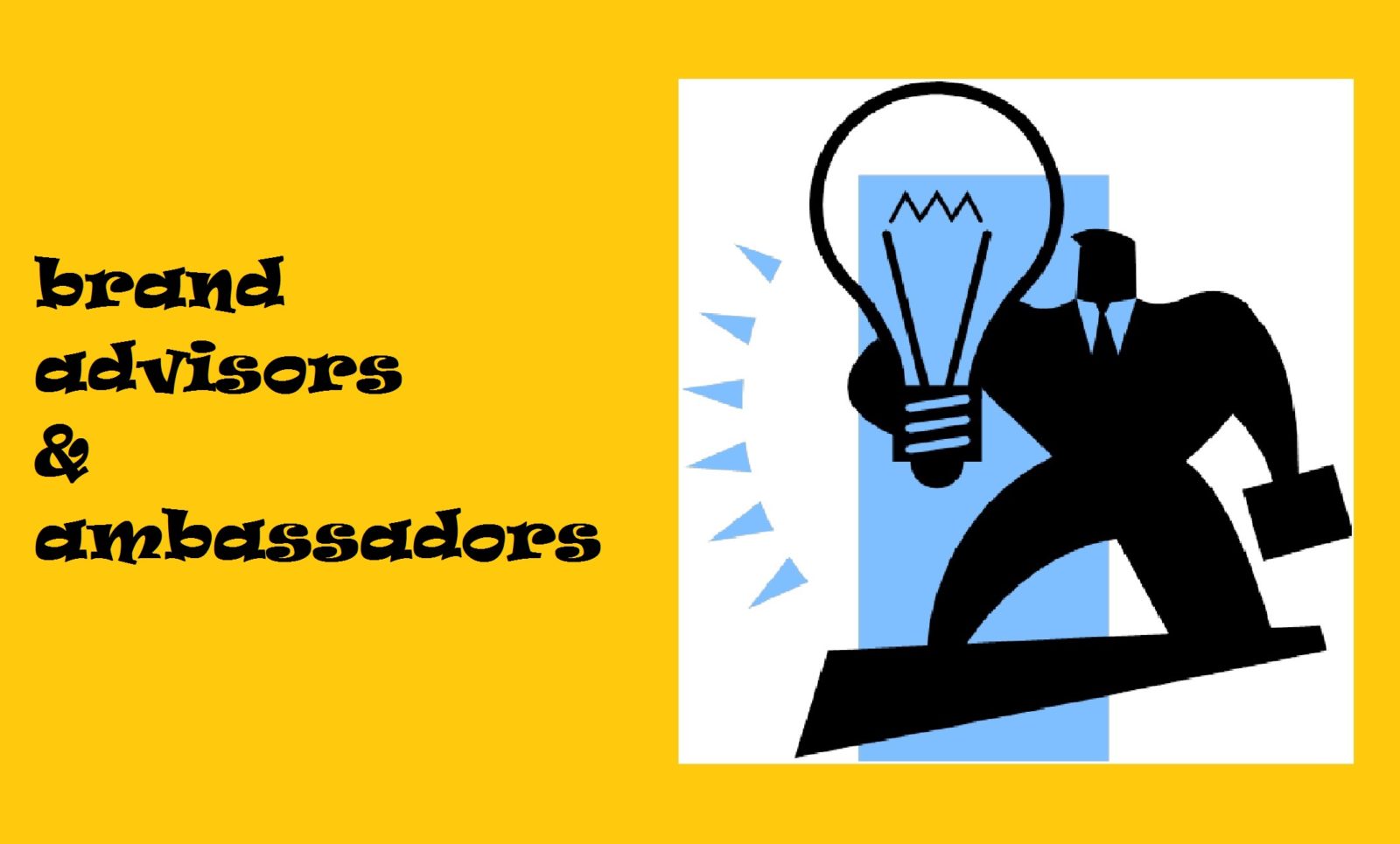Advisors are the new ambassadors?
Read further!
Brand advocates promote a brand.. The role of our people is changing, towards brand influencers; true for nearly all the people in our company population, because all have a network.
There are no more “simple and only” employees, who only do perform tasks, they also do represent us! Their role is changing towards a more involved, and a public one.
Brand ambassadors are normally appointed by companies (for a definition – Wikipedia), and are considered to be the key salesperson for a product or service on offer. They will represent a brand in a positive light, and, by doing so, they help to increase the brand awareness and sales. So, a brand ambassador is a positive spokesperson, an opinion leader and/or a community influencer.
The brand advisor is a new role in the network organized companies who operate part of their activity through communities. Many companies have realized and do actively action the power of the brand advisor.
The brand ambassador exists since influential people are influencing other people. The brand ambassador’s job is to drive results through communication tools, either publicly, such as social media, or privately including emails, messaging and further one-to-one channels.
Taken these meanings we could call the brand advisors “smaller in size” brand ambassadors, so, on a smaller scale. Intended as doing a similar job but in their immediate environment of acquaintances, friends and family. That is not to say that their role is less important, on the contrary, in their community they are likely to enjoy a high level of credibility.
A brand advisor, in this definition, is not specifically appointed, as is a brand ambassador, but a credible person for the brand in their community. So potentially any stakeholder of the company, including employees, can be an advisor for your brand.
A question could arise, about, if the advisors, being non professional brand promoters, should be trained for this role. And the answer is that probably that would be a good idea. It would not need to be a long training, but the do’s and don’ts of branding would be good to know, as they have a strong influence on credibility.
The definition of credibility in Wikipedia: “Credibility refers to the objective and subjective components of the believability of a source or message”.
If we take this reasoning one step further, for, specifically, your employees, they could be promoters of your brand. As, in truth, there’s no better PR than an army of loyal employees who live and breathe your brand.
We like very much the post of Karin Hurt who takes a very hand-on approach to employees as brand advocates. Our view, not dissimilar, is described below.
“You know this type of people, with enthusiasm bursting from their veins”, and talking-up your products and services with their friends on every possible occasion, including social occasions such as bars, a family party, the local club, etc.
There are a few simple rules to respect when asking your employees, in particular, to be advocates (advisors) for your brand. These rules have to do with a reciprocal understanding of the new roles.
- Treat them as the owners of the brand, as they effectively are, co-owners, and acknowledge their role.
- Let them speak in their own context and social environment in their own language, and culture, which will be most effective. Taking into account the do’s and don’ts.
- Be honest, don’t hide issues, but ask them to help to fix them.
- And then, listen to the feedback. This may seem obvious, but active listening requires a mindset and capability on acting on what you have learned.
- Make sure that your employees are seeing the competitive context, and understand the global environment in which the company is operating.
- Recognize the achievements of the employees and let them be the leader in their environment and network, so, recognized brand advisors.
- Formal recognition by the company is as important as is the possibility to benefit from the status as advisor. This does not mean monetary recognition, as much as public appreciation for their personal involvement and efforts. So, how to properly do this may need some thought and “magic”.
That is to say that a company should march in one direction, and spending a lot of money to build your brand does make little sense, if the employees and other stakeholders of the company don’t support the brand.
On the contrary, peer 2 peer (P2P) influencing by convinced employees does much more for your brand than a lot of advertising, and is much more credible.
LINK to BLOG
LINK to LinkedIN
Tags: #isabellapenati #GrowYourPeople #advisor #advisors #ambassador #ambassadors #advocate #brand #brands

